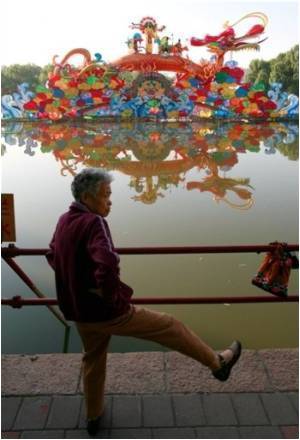Depression seems to be increasing among elderly. More than 2 million people aged 65 and above suffer from depression and the suicide rate among white men over 85 years is the highest.

The results of the study appear in the current online edition of the American Journal of Geriatric Psychiatry.
"This is the first study to demonstrate the benefits of tai chi in the management of late-life depression, and we were encouraged by the results," said first author Dr. Helen Lavretsky, a UCLA professor-in-residence of psychiatry. "We know that nearly two-thirds of elderly patients who seek treatment for their depression fail to achieve relief with a prescribed medication."
In the study, 112 adults age 60 or older with major depression were treated with the drug escitalopram, a standard antidepressant, for approximately four weeks. From among those participants, 73 who showed only partial improvement continued to receive the medication daily but were also randomly assigned to 10 weeks of either a tai chi class for two hours per week or a health education class for two hours per week.
All the participants were evaluated for their levels of depression, anxiety, resilience, health-related quality of life, cognition and immune system inflammation at the beginning of the study and again four months later.
The level of depression among each participant was assessed using a common diagnostic tool known as the Hamilton Rating Scale for Depression, which involves interviewing the individual. The questions are designed to gauge the severity of depression. A cut-off score of 10/11 is generally regarded as appropriate for the diagnosis of depression.
Advertisements
While both groups showed improvement in the severity of depression, said Lavretsky, who directs UCLA's Late-Life Depression, Stress and Wellness Research Program, greater reductions were seen among those taking escitalopram and participating in tai chi, a form of exercise that is gentle enough for the elderly.
Advertisements
"With tai chi," she said, "we may be able to treat these conditions without exposing them to additional medications."
Source-Eurekalert















